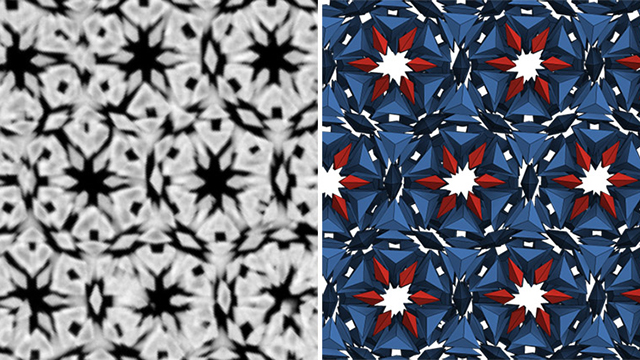
Targeting rare and deadly brain cancer
A new drug is able to cross the challenging blood-brain barrier to reach tumors in animals, where it turns down a critical cancer-causing gene.
At Northwestern, an interdisciplinary culture embraces the unexpected
“Some of the most important discoveries are made because you set out to do one thing but, in the lab, you discover something completely unanticipated,” says Chad Mirkin, director of the International Institute for Nanotechnology. “There's an element of serendipity. But it's the right type of scientist that knows it’s that serendipity that ultimately leads to a big discovery.”

A new drug is able to cross the challenging blood-brain barrier to reach tumors in animals, where it turns down a critical cancer-causing gene.

A Northwestern-led research team reports an inexpensive and renewable material that rapidly removes the highly toxic water pollutant PFOA from water.

Possible applications for this crystal include controlling light, capturing pollutants and delivering therapeutics.
Published: July 28, 2017. Updated: August 29, 2017.
Back to top